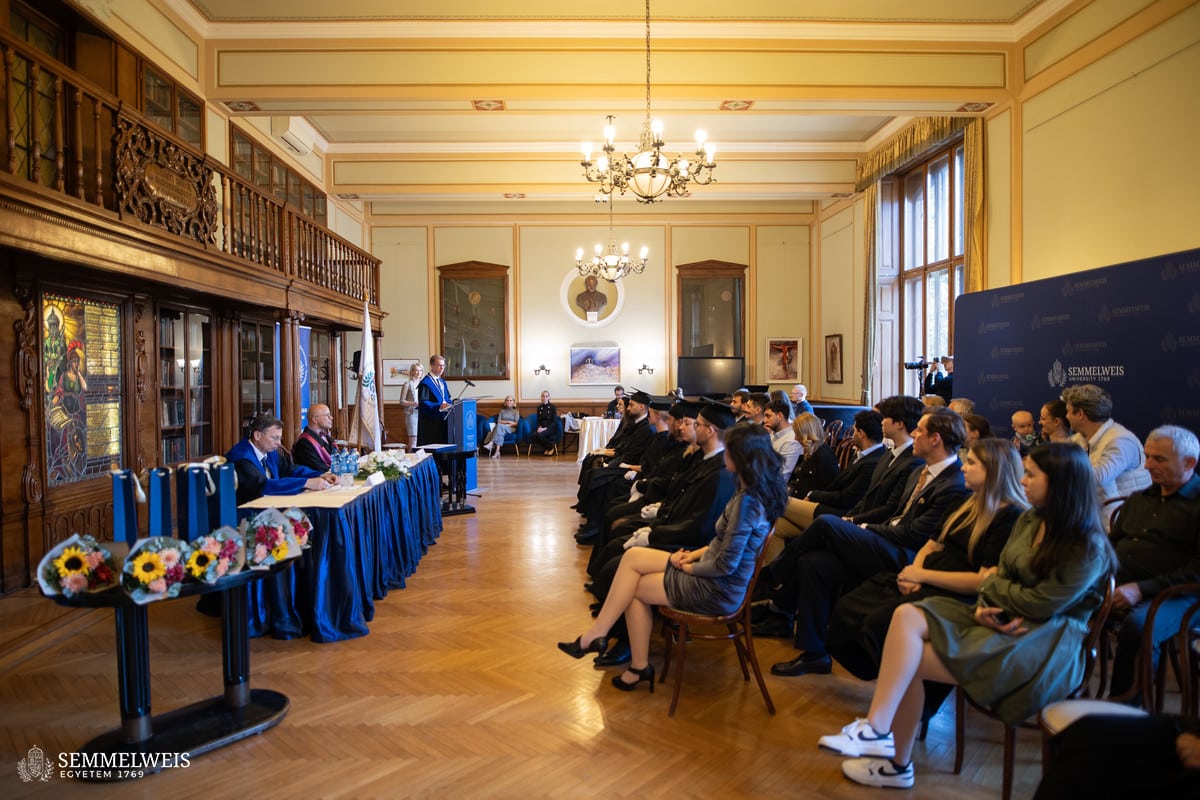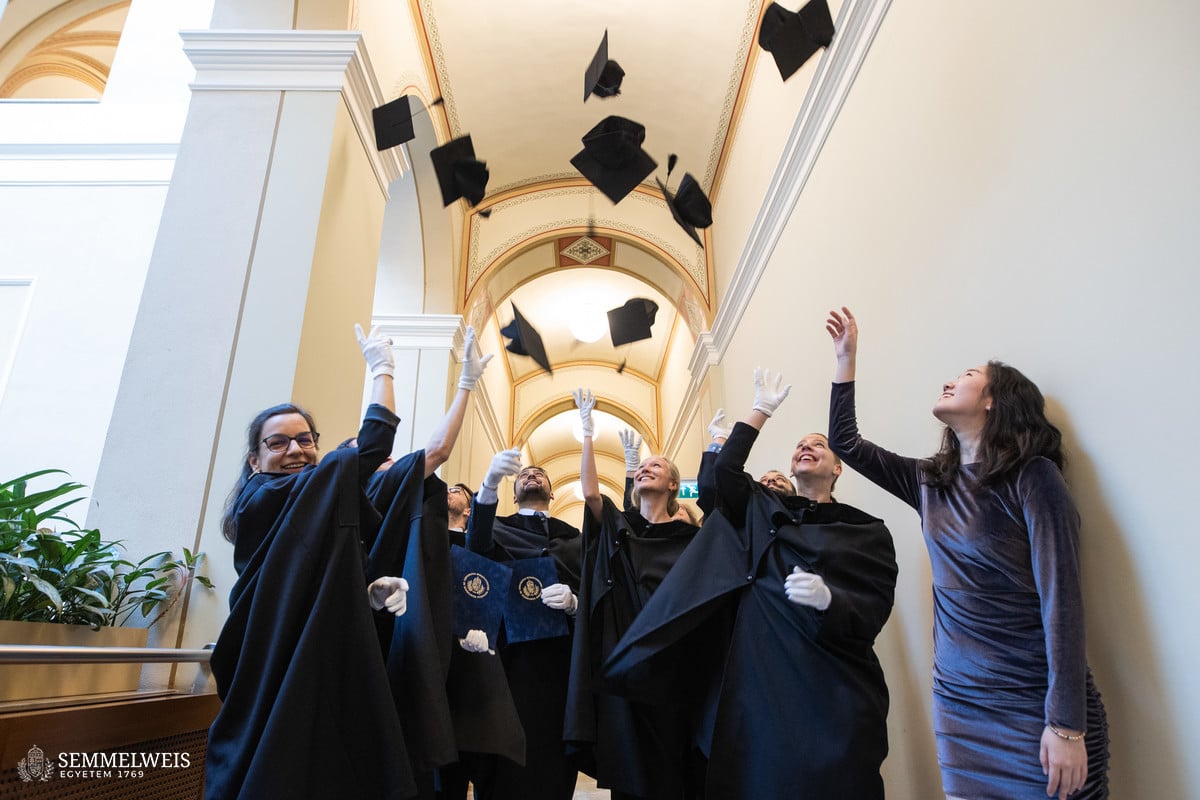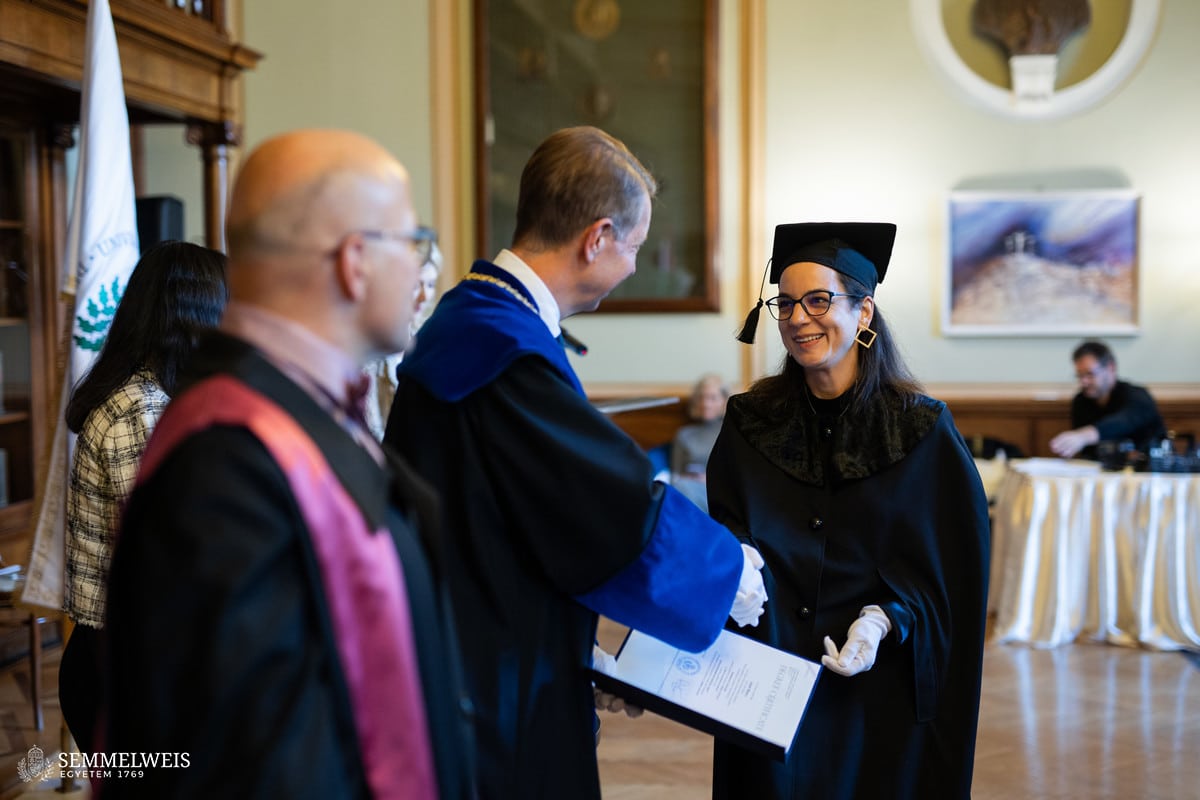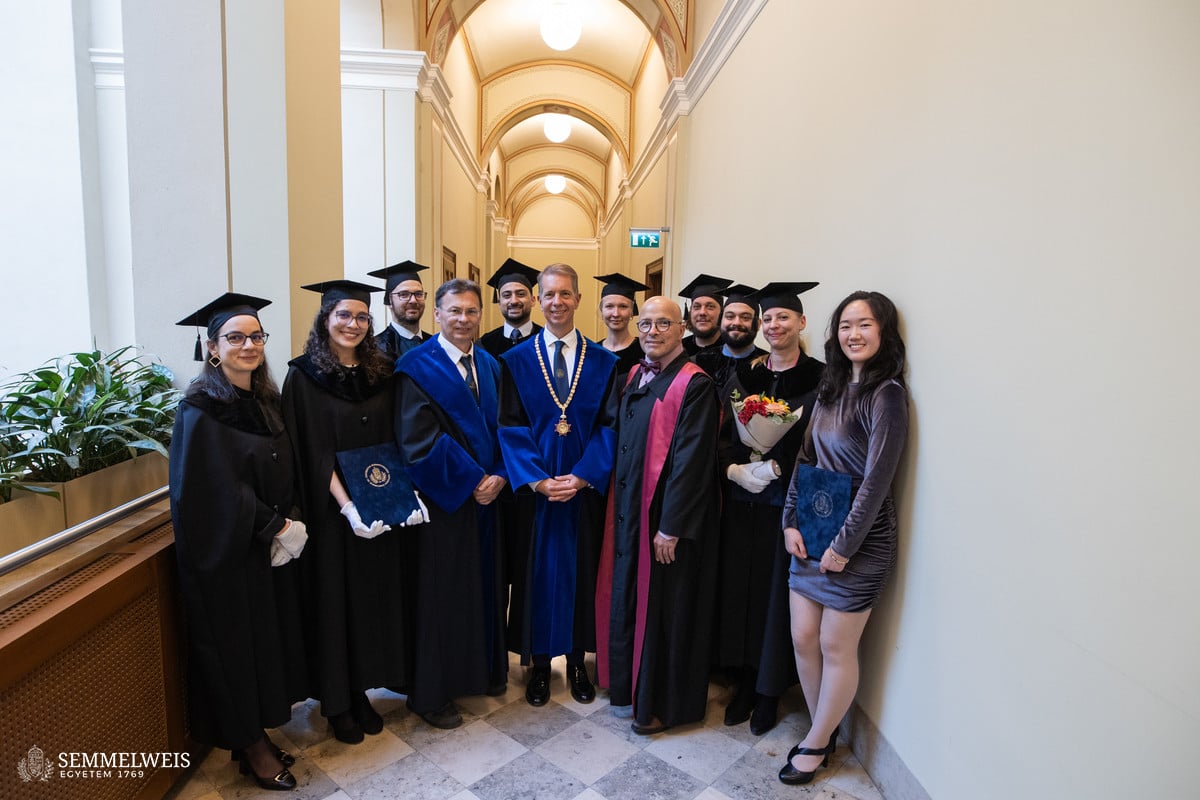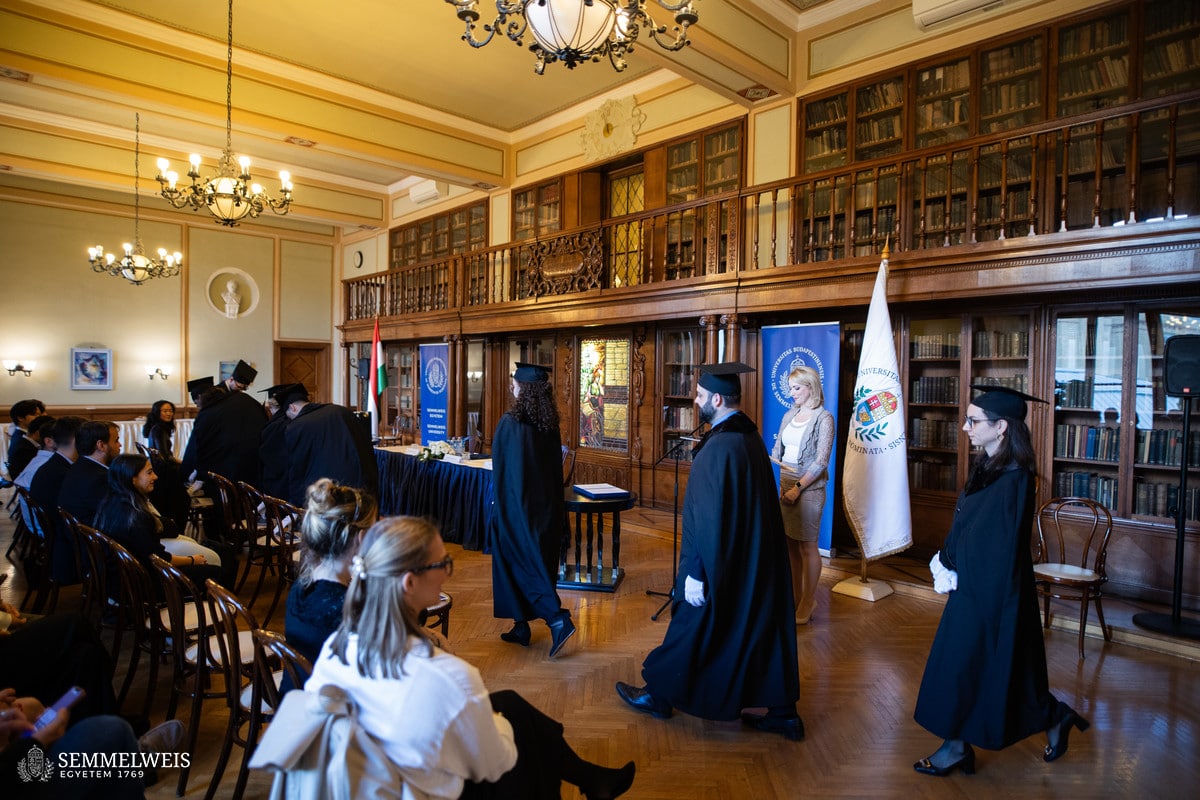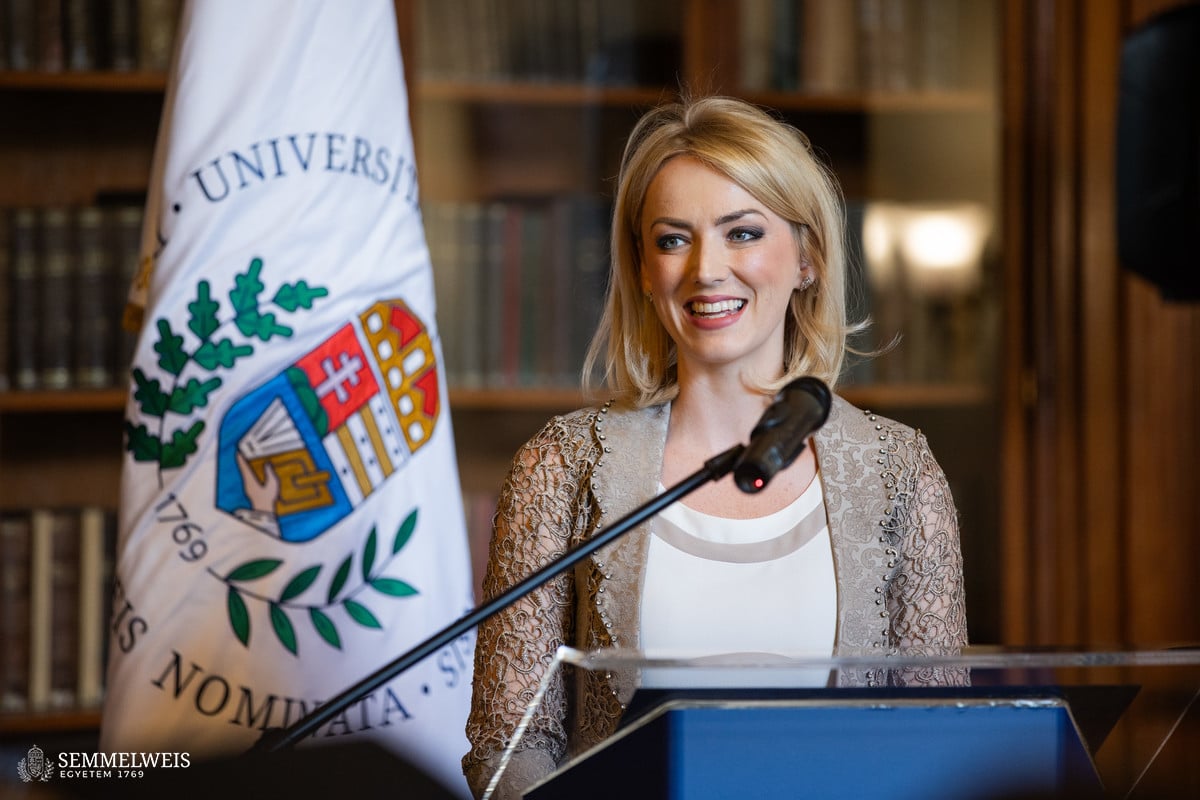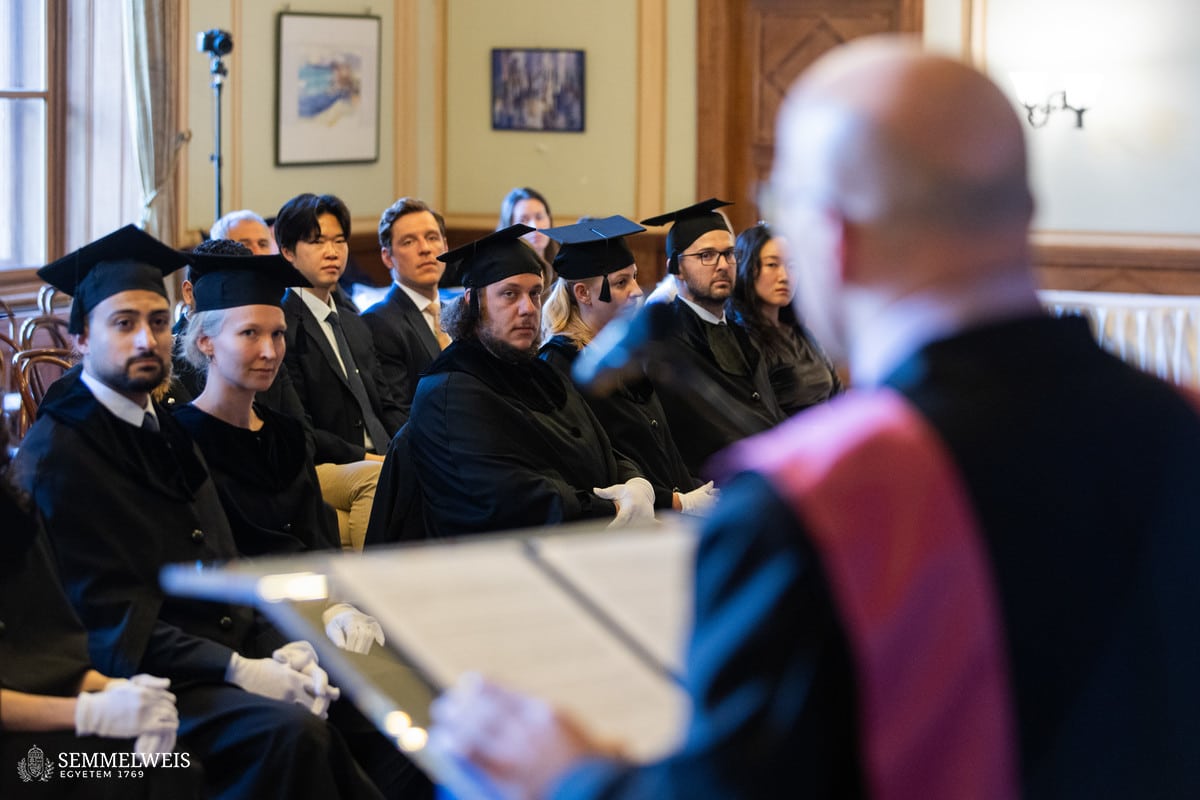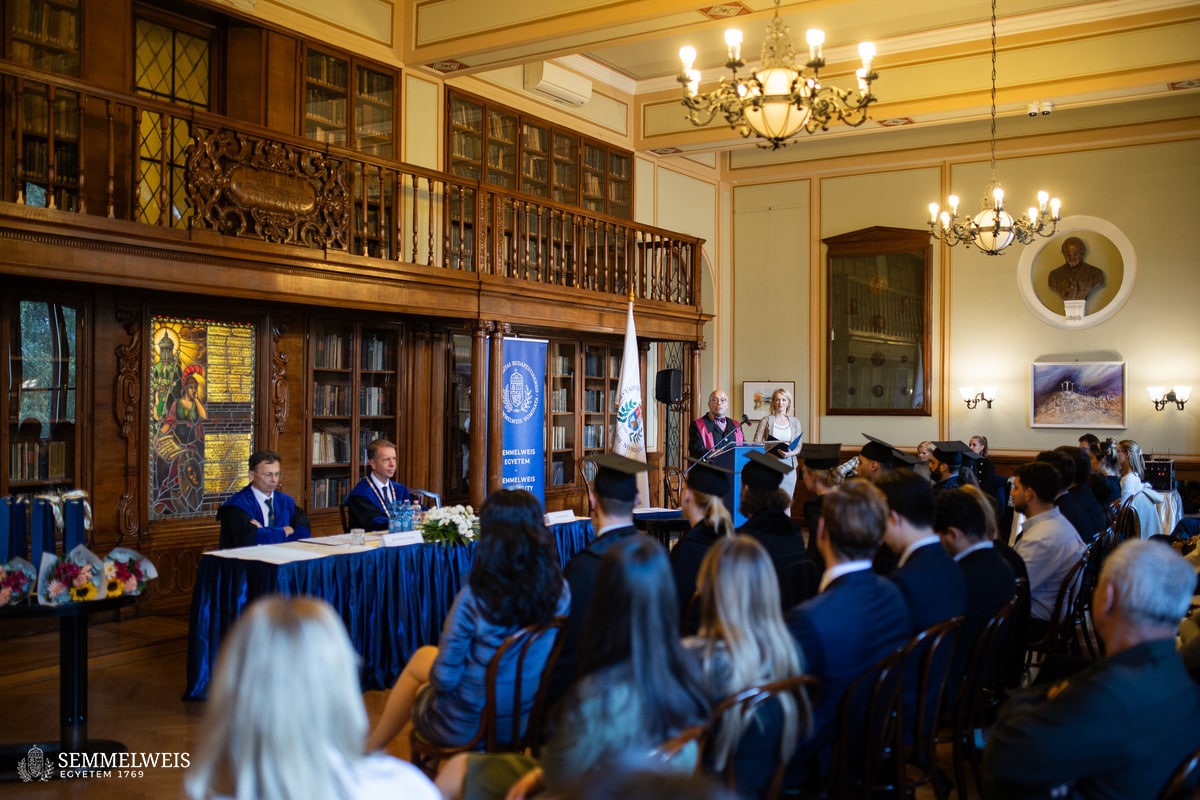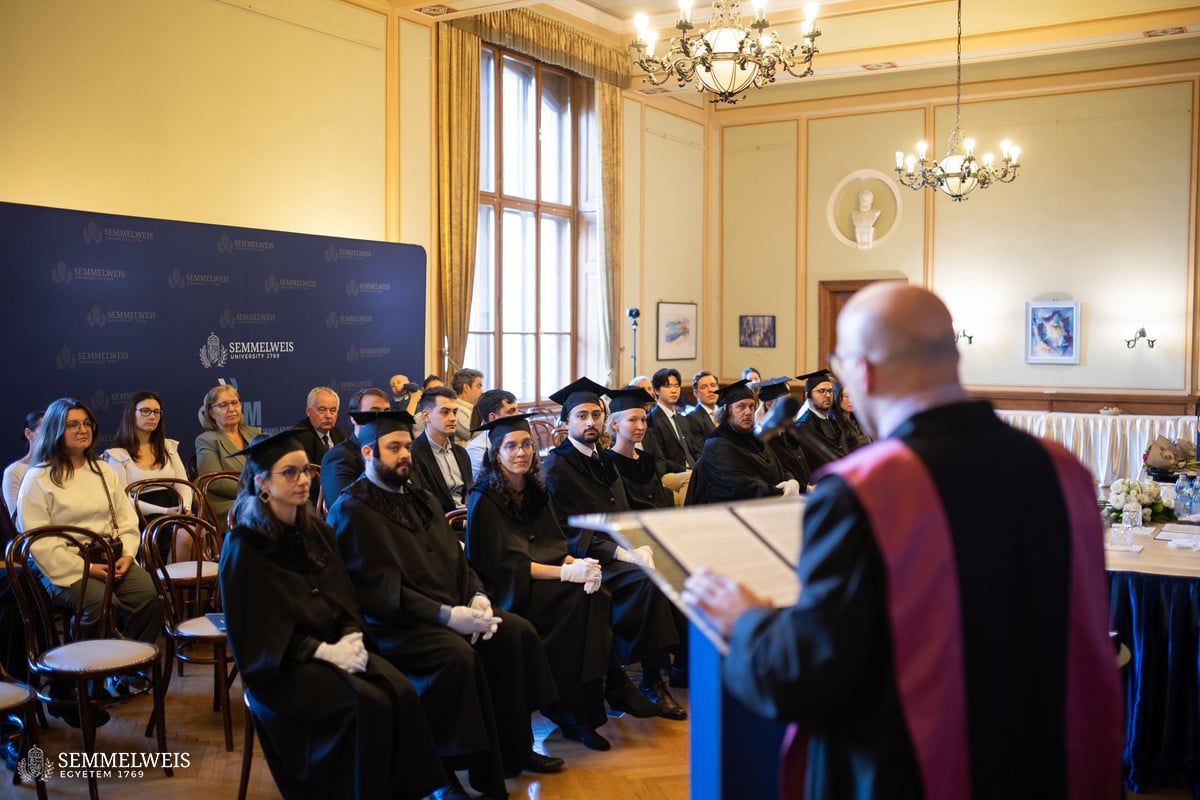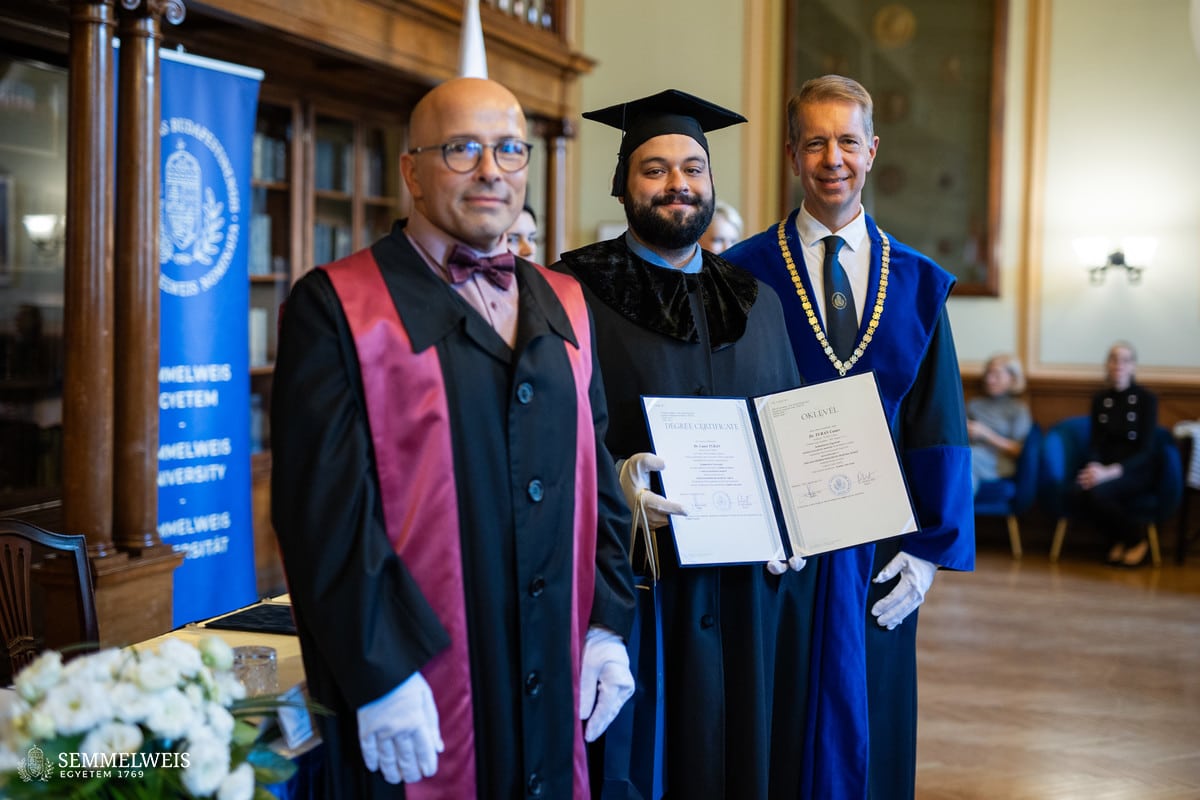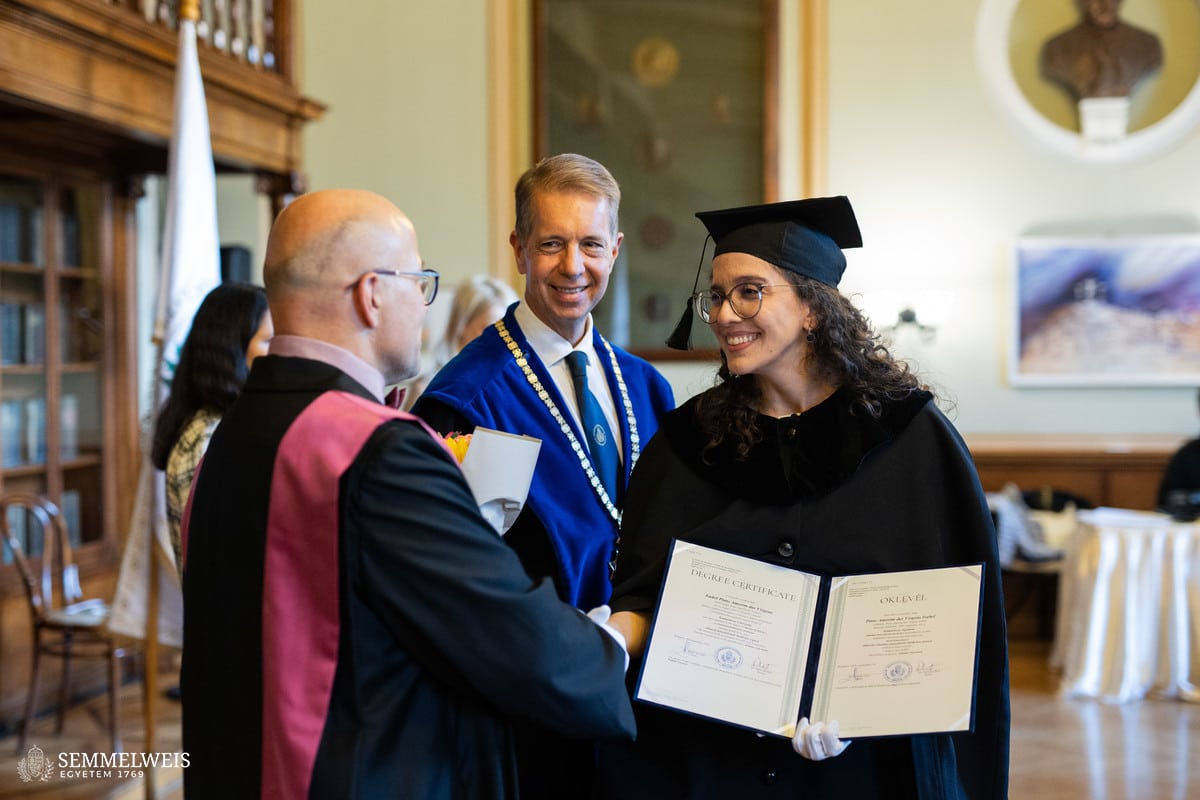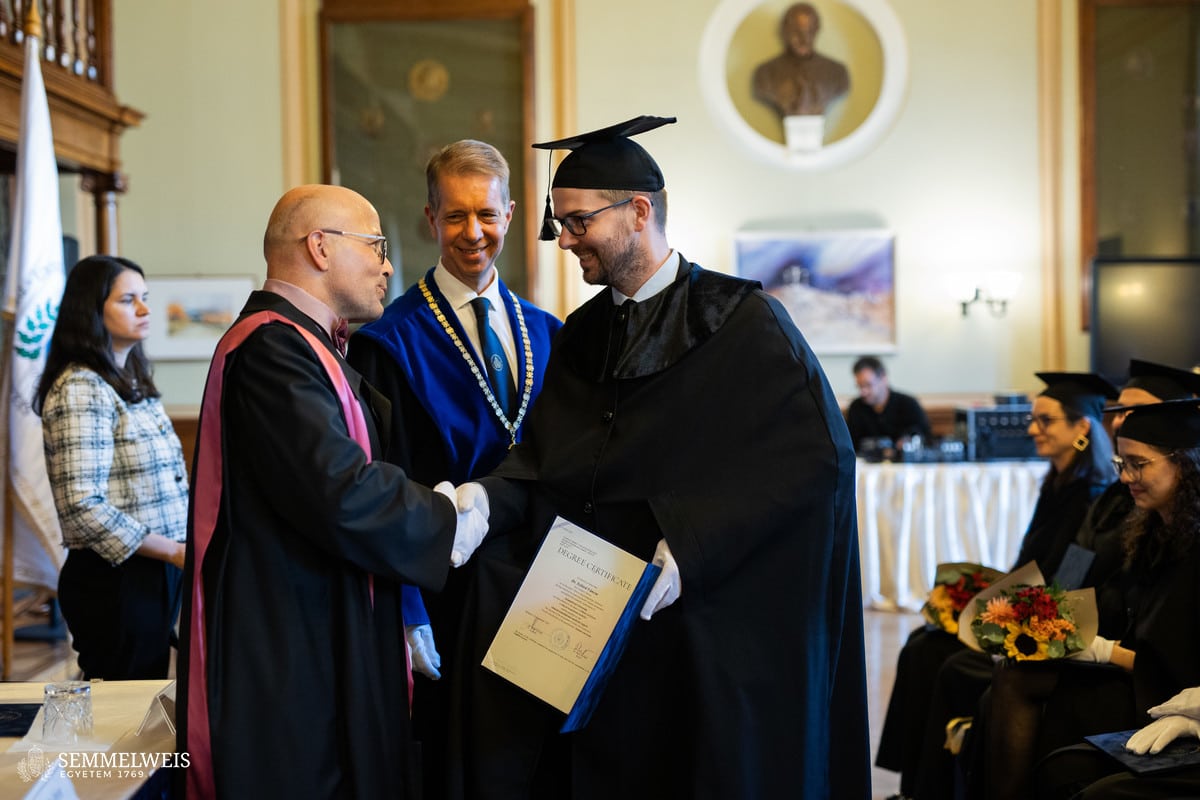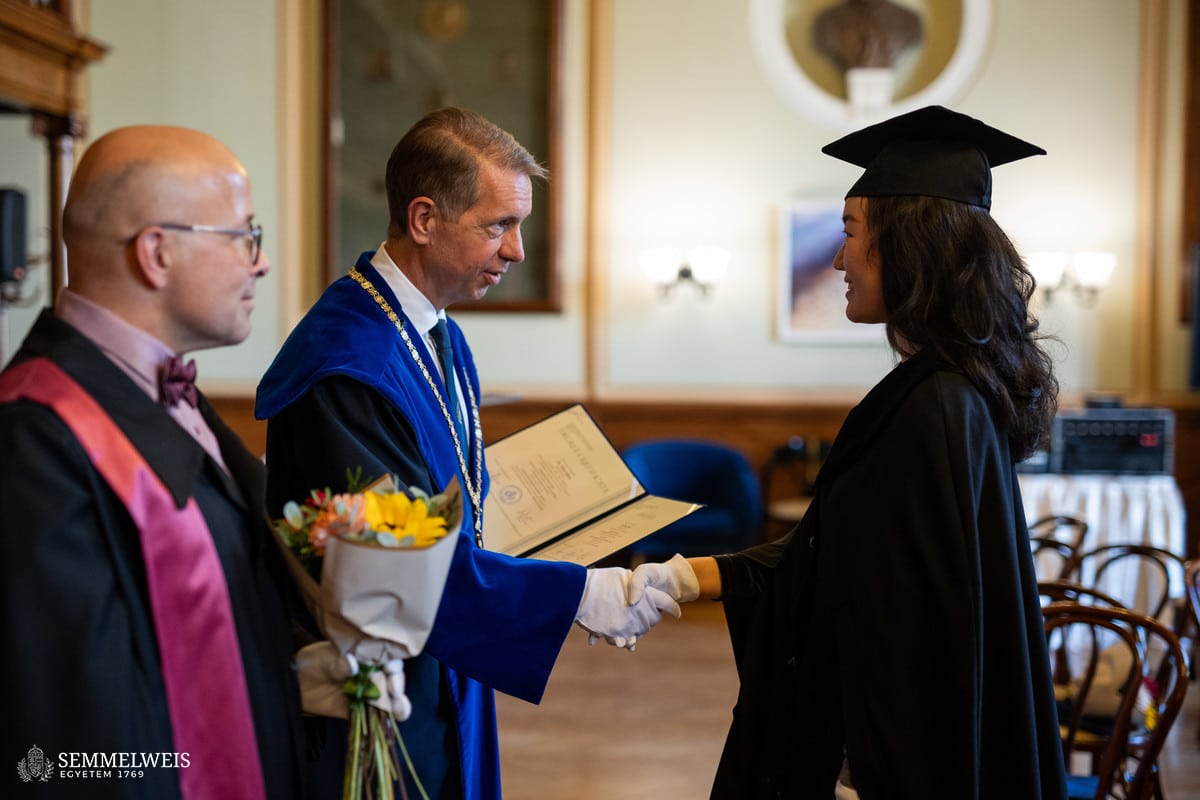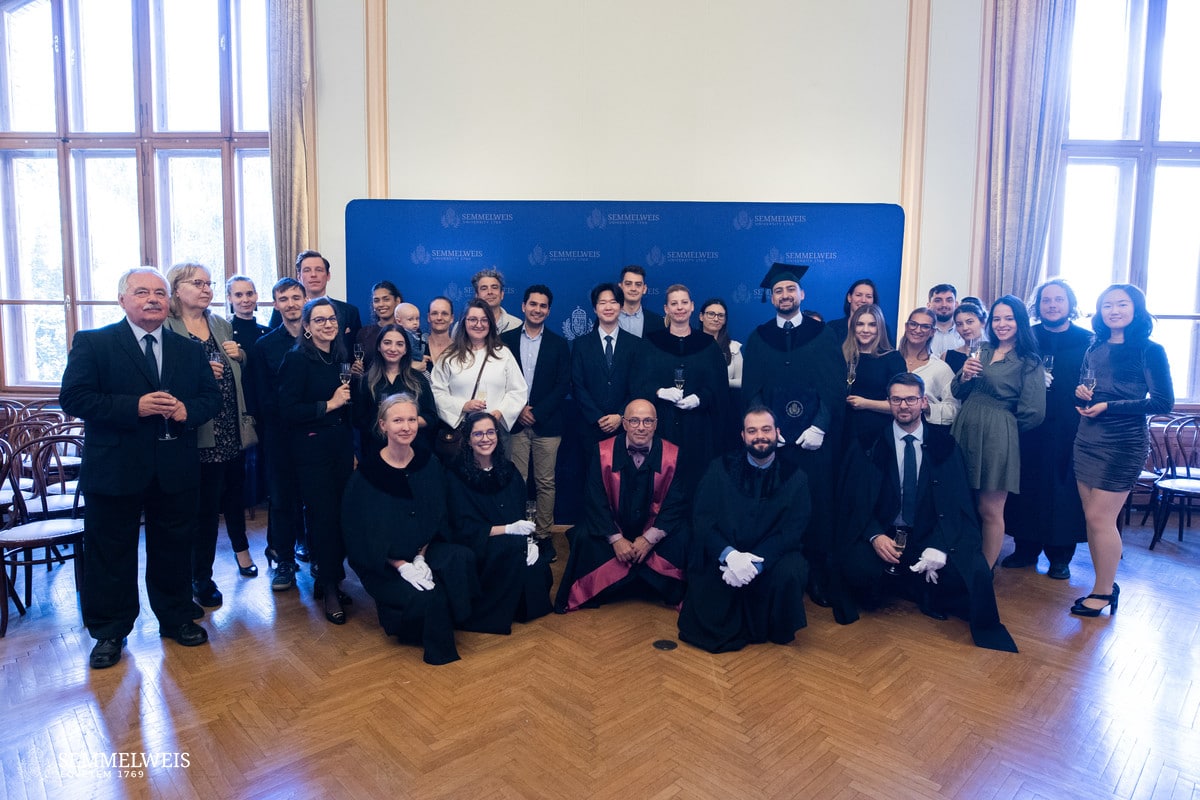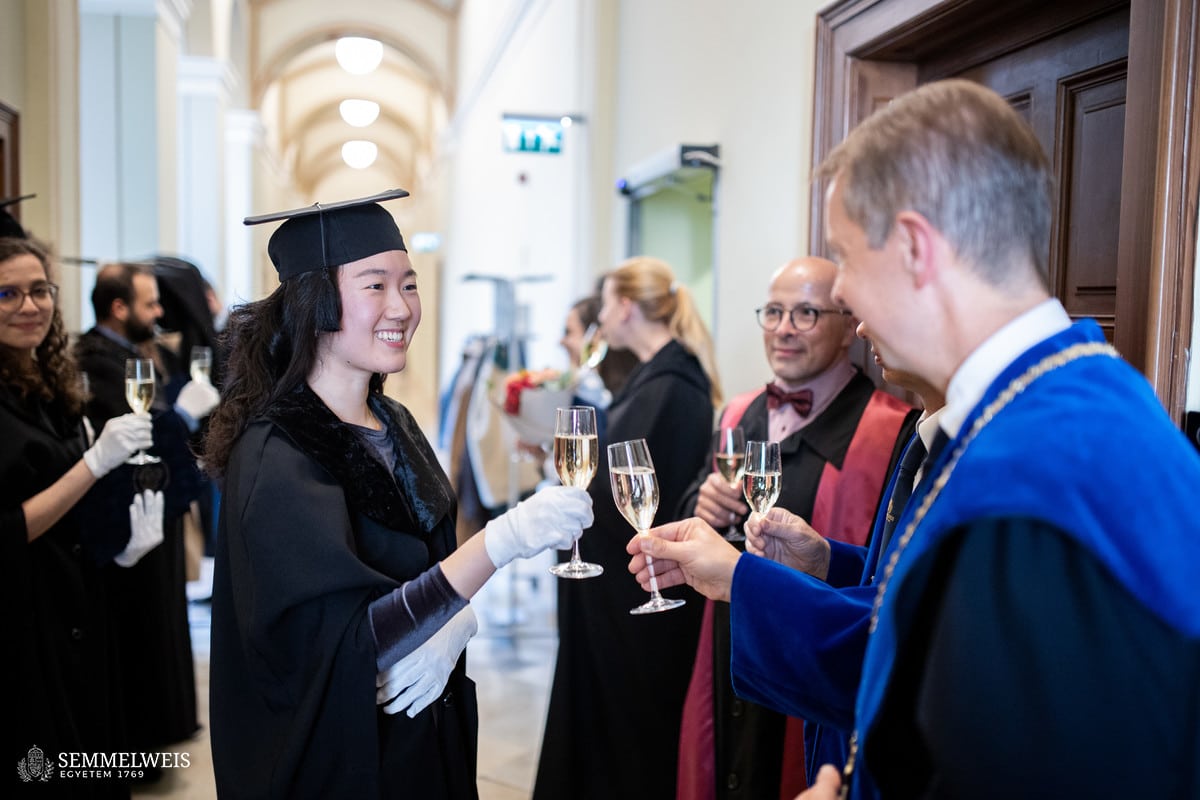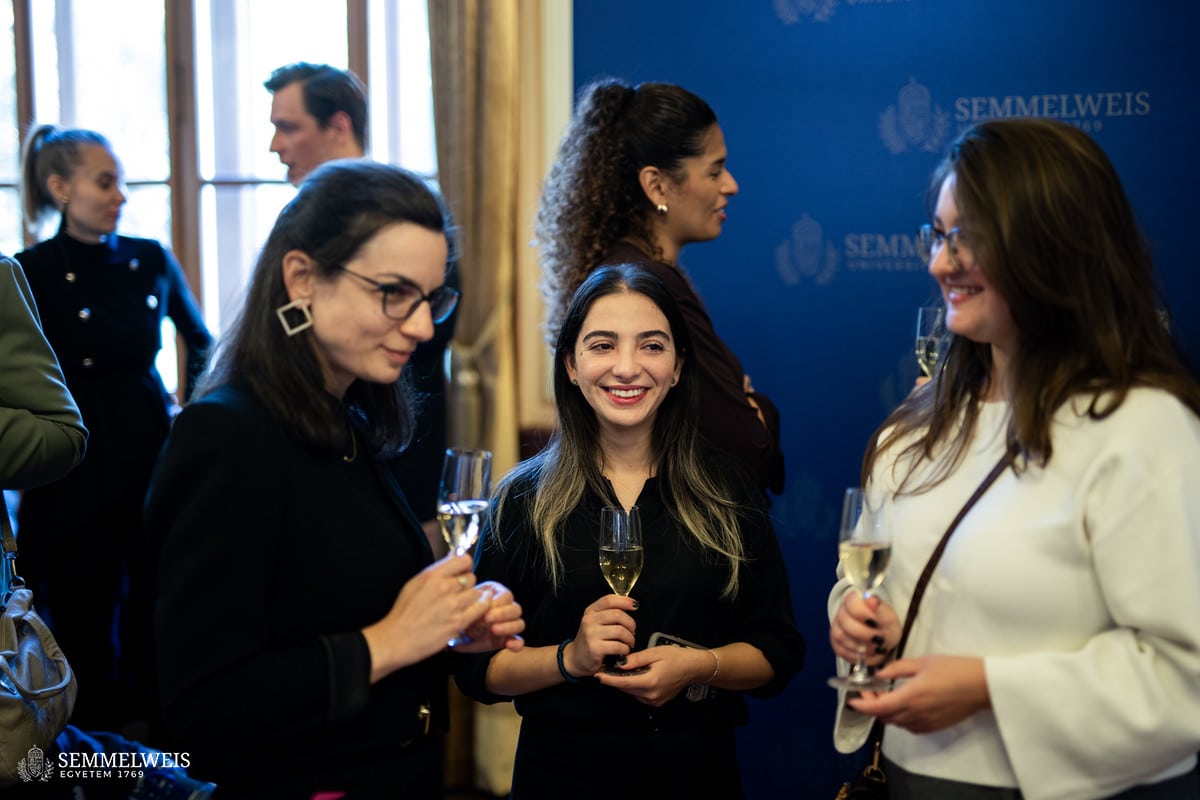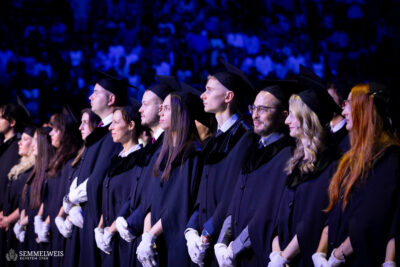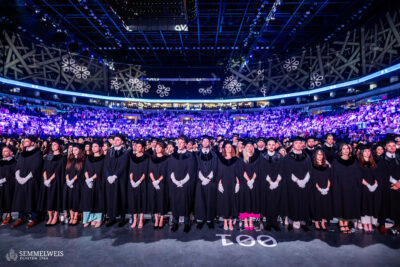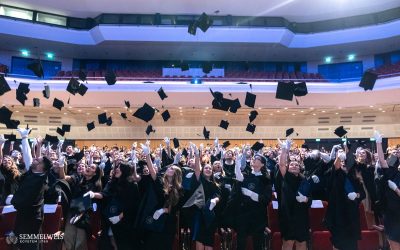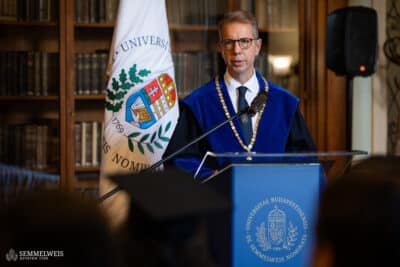 At the graduation ceremony, Semmelweis University’s leadership was represented by Dr. Péter Nyirády, Dean of the Faculty of Medicine (ÁOK), Dr. Péter Hegyi, Director of the Center for Translational Medicine (TMK), and Dr. György Purebl, Vice-Dean for Educational Affairs. In his ceremonial speech, Dr. Péter Nyirády emphasized that Semmelweis University had reached a new milestone, as this was the first time in the history of the master’s program in Clinical Translational Medicine that diplomas had been awarded. “This moment is remarkable, as Semmelweis University once again proves its ability to look ahead, to respond to the challenges of modern medicine, and to open new paths for future generations. This program is not simply another degree; it is the symbol of a new approach. An approach in which education and research, science and healing, form an inseparable unity,” the dean said. “This day affirms for all of us that the fruit of our joint efforts is a new generation of physicians who are both researchers and healers, and who – through their knowledge and dedication – will contribute to the development of both Hungarian and international healthcare,” he added.
At the graduation ceremony, Semmelweis University’s leadership was represented by Dr. Péter Nyirády, Dean of the Faculty of Medicine (ÁOK), Dr. Péter Hegyi, Director of the Center for Translational Medicine (TMK), and Dr. György Purebl, Vice-Dean for Educational Affairs. In his ceremonial speech, Dr. Péter Nyirády emphasized that Semmelweis University had reached a new milestone, as this was the first time in the history of the master’s program in Clinical Translational Medicine that diplomas had been awarded. “This moment is remarkable, as Semmelweis University once again proves its ability to look ahead, to respond to the challenges of modern medicine, and to open new paths for future generations. This program is not simply another degree; it is the symbol of a new approach. An approach in which education and research, science and healing, form an inseparable unity,” the dean said. “This day affirms for all of us that the fruit of our joint efforts is a new generation of physicians who are both researchers and healers, and who – through their knowledge and dedication – will contribute to the development of both Hungarian and international healthcare,” he added.
In his welcome address, Dr. Péter Hegyi drew a parallel between the recent graduates and Ignác Semmelweis, who more than 150 years ago asked a simple yet profound question at the bedside that changed medicine forever. “He observed, collected data, tested hypotheses, and finally identified the cause. The solution was as simple as it was revolutionary: handwashing with chlorine water. That is translational medicine in its purest form,” the director recalled. As he told the students:
You each began with a clinical question. Through scientific work you searched for answers. You published your findings, transforming them into knowledge. And today, this knowledge is already being used in hospitals, clinics, and laboratories across the world.
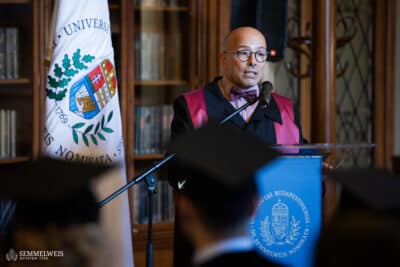 The English-language master’s program in Clinical Translational Medicine was created with a clear vision: Science should not remain within the walls of laboratories, nor should clinical questions fade unanswered at the bedside. Therefore, a cycle was needed, a living system where healthcare and science continuously enrich each other. To this end, Semmelweis University staff, together with members of Academia Europaea, a non-governmental organization operating as an academy, developed the Cycle model with four milestones (healthcare, science, knowledge, communication). “A question is born at the bedside, science seeks and discovers the answers, knowledge is generated, communication ensures that this knowledge spreads across borders, disciplines, and generations, and finally, the solution returns to the patient’s bedside,” Dr. Péter Hegyi pointed out, explaining the background of the new program.
The English-language master’s program in Clinical Translational Medicine was created with a clear vision: Science should not remain within the walls of laboratories, nor should clinical questions fade unanswered at the bedside. Therefore, a cycle was needed, a living system where healthcare and science continuously enrich each other. To this end, Semmelweis University staff, together with members of Academia Europaea, a non-governmental organization operating as an academy, developed the Cycle model with four milestones (healthcare, science, knowledge, communication). “A question is born at the bedside, science seeks and discovers the answers, knowledge is generated, communication ensures that this knowledge spreads across borders, disciplines, and generations, and finally, the solution returns to the patient’s bedside,” Dr. Péter Hegyi pointed out, explaining the background of the new program.
Following the speeches, the newly graduated students received their diplomas in a ceremonial setting from Dr. Péter Nyirády and Dr. Péter Hegyi. A total of ten students graduated from the first year of the Clinical Translational Medicine MSc program, one of whom was unable to attend the ceremony in person. After the degrees had been awarded, the university leadership and the new graduates gathered for a group photo, followed by a festive toast and an informal conversation.
The senators approved the establishment and launch of the master’s program in Clinical Translational Medicine at the May 2024 meeting of the Semmelweis University Senate. The one-year, intensive MSc program launched last year at the Center for Translational Medicine is also the first master’s program established at ÁOK. Its aim is to bridge the gap between university studies and a scientific career by providing hands-on training in clinical and translational research. The program helps students become critical consumers of medical research papers, gather primary data on health issues through questioning and observation, and conduct biomedical research. Applicants must have a bachelor’s (BSc) degree or provide proof that they are registered for their final semester of university studies. In addition, they must be at least at B2 level in English, which will be assessed in an oral admission interview.
Dr. Balázs Csizmadia
Photos by Gábor Ancsin – Képszerkesztőség (www.kepszerkesztoseg.hu)
